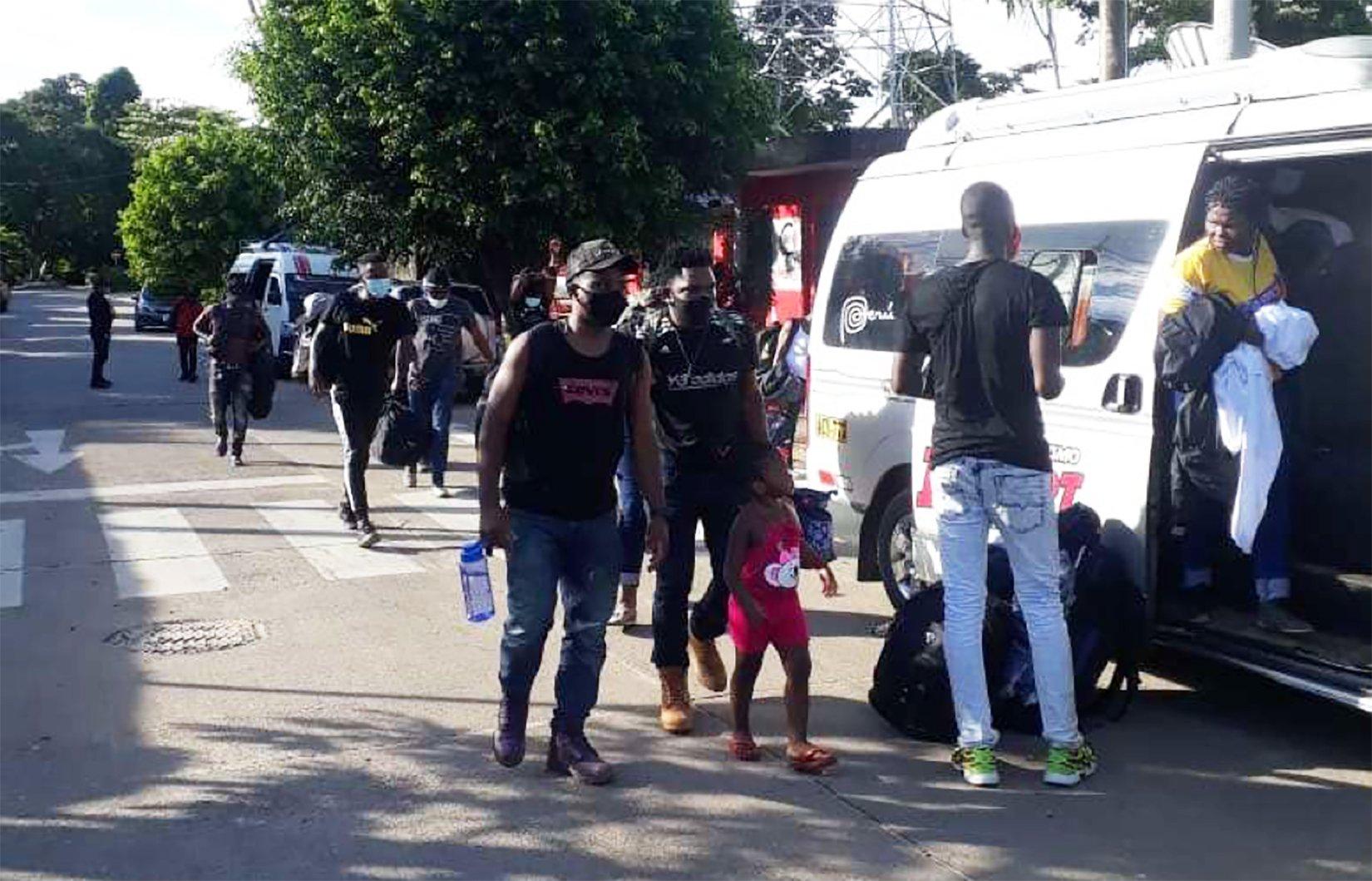LIMA, Peru — Didier Jackson had not planned on coming to Peru and, once in the country, did not intend on staying. He and his family, however, got stuck and are now trying to figure out where to go next.
Jackson, 31, and his wife arrived in Peru in mid-January, walking across a shallow river from Brazil. The 3,100-mile journey from Santa Catarina, on the Brazilian coast, to Puerto Maldonado, in Peru’s southeastern jungle, took weeks, but was only the first leg toward the ultimate goal — the United States.
They would have been on their way, but Jackson’s wife is pregnant and needed medical attention. After being stopped by the police, it became clear they could not continue until his wife gave birth. They stayed and are now caught legal limbo.
“We stayed here because my wife is going to have a baby. We were going to Ecuador, where we were told we could go to the United States, but had to stop,” Jackson said by phone from a police station where he needs to check in periodically. “I am waiting to see what happens, because our child will be born here,” he said in French, with a smattering of Portuguese and a few words in Spanish.
The Jackson family is not alone, joining other Haitians and people from as far off as Guinea Bissau and Togo, entering Peru from Brazil. They are part of wave of economic migrants created by the pandemic who are on the move, but coming up against increasing obstacles.
“We have had people coming across the border for a while, but there were not many. It is much more visible now because of the pandemic and the economic crisis in Brazil,” said Carol Jeri, human rights coordinator in Madre de Dios for Caritas, the Catholic Church’s development and relief network.
Madre de Dios is a key jumping off point because of a Haitian population in Acre, the Brazilian state on the other side of the border, who arrived after the 2010 earthquake in their Caribbean nation. It is also an easy place to cross into Peru because of the porous border. It is a quick walk from Assis, in Brazil, down a hill to the shallow Acre River. On the other side in Peru is Iñapari, where minibuses shuttle people all hours of the day to Puerto Maldonado, the departmental capital.
The majority of migrants crossing into Madre de Dios move on quickly, paying “coyotes” to get them first to Puerto Maldonado. Jeri said the cost was around $15 prior to the pandemic, but has since jumped to more than $100 as border controls have tightened. The journey once they are in Peru takes migrants from the jungle, over the Andes and down to Peru’s Pacific coast. It is 1,200 miles from Madre de Dios to Peru’s northern border with Ecuador.
Peru’s border with Ecuador is much harder to cross, with the government moving in more than 1,000 soldiers in January to plug holes and prevent migrants, primarily from Venezuela, from entering. Peru has close to 1 million Venezuelan migrants.
Jeri said migrants are led to believe that, once in Ecuador, they can make their way to Central America and, finally, the United States.
Her office has helped a few migrants, but she said the majority want to avoid contact because they are illegal and are looking for the best way to move on. Jeri said this makes it hard to protect them from coyotes and other criminals who prey on them.
She said Haitians and other immigrants are leaving Brazil because the pandemic and economic pressures, including competition from an influx of Venezuelans in recent years, have made finding work increasingly difficult. Options used in the past, such as making their way to Chile or Argentina, are no longer open to Haitians and other migrants.
Jackson said he and his family decided to leave Brazil after five years because he could no longer find work. He said returning to Port-au-Prince, the Haitian capital, was not a possibility given the crisis there.
“I have not been able to find steady work for nearly a year. We could not survive any longer in Brazil, which is why we decided to leave,” he said.
Peruvian Police Col. Wilder Rodríguez said officers routinely stop migrants, returning them immediately to Brazil, which they did Jan. 31 with two men with Cameroonian passports.
Migrants are only detained if they are apprehended with Peruvians, who are arrested for human trafficking.
Police officers stopped a group 22 Haitians, including several children, Jan. 27. They detained them and the two Peruvians who were transporting them from the border. Rodríguez said the Haitians were released and he assumes they have moved on.
“The migrants we detain are released from custody after they are processed. They are supposed to return for a hearing, but we never see them again,” he said.















